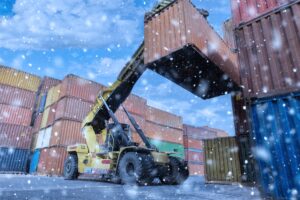The month of December finds us reflecting on the year that’s winding down while making plans for the upcoming year. We see 2025 as a year of opportunity.
For many large companies, the reporting requirements of the Corporate Sustainability Reporting Directive (CSRD) will kick in next year. According to a recent PwC Luxembourg survey that interviewed 200+ C-suite executives, 45% of them are worried about having enough resources to comply with the directive, while data quality and consistency are a concern for 55%.
We work with many organizations that are driven by their reporting responsibilities to tackle challenges like these. But many of them also recognize that by solving them, they can open the door to significant opportunity.
Fifty-one percent of the PwC survey respondents expect “CSRD reporting to be materially relevant to their value creation.” And in an earlier global CSRD survey conducted by PwC, 45% of companies reporting in 2025 believe their CSRD disclosure exercise will translate into competitive advantage. Fifty-seven percent expect better environmental performance as an outcome.
Improved environmental performance has moved up the corporate priority list, as it should, given the growing pressure from stakeholders and consumers. Partners, customers and investors are now less forgiving when environmental performance is poor, and business leaders must remember that recovery from reputational damage is not easy.
In time, many large companies will also face the due diligence requirements introduced by the Corporate Sustainability Due Diligence Directive (CSDDD). Because the CSDDD applies to companies as well as their subsidiaries and supply chains, it creates an immediate need for businesses to take a very close look at their supply chain. Negative environmental and social impacts linked to an organization’s operations or those of its subsidiaries should be easier to detect. But negative impacts that surface in a company’s supply chain will receive just as much condemnation, even if they are harder to uncover.
The CSDDD prompts businesses to establish policies that will help them identify conditions or practices that have caused harm or are potentially harmful. If these policies are effective — and if businesses act quickly to address any negative effects — they’ll protect them against the kinds of incidents that could impact shareholder value or interfere with operations, fundraising or hiring.
In short, CSRD reporting and CSDDD due diligence requirements constitute a heavy lift for companies, but through them, businesses gain improved visibility and better information for enhanced decision-making.
While we’re talking about visibility, I want to mention our Supply Chain Risk Report, which will be coming out early in the new year. This annual report looks at the risk alerts generated by our Supply Chain Risk Management Software to see which events and developments affected supply chains the most during 2024. The report also offers insights into what companies should be watching for in the months ahead. Overall, the report provides compelling information that supply chain and procurement professionals can use to make their supply chains more resilient in 2025.
As it often does, the new year comes with a fair amount of uncertainty. Conflict in the Middle East and Ukraine and political disruption in South Korea are factors to be considered. And an embargo on the export of critical minerals from China to the U.S., as well as proposed tariffs on goods entering the U.S. from China, Canada and Mexico, must be watched for their impact on business operations, supply chains and the U.S. economy as a whole. You can also add a warming climate and changing weather patterns to the unknowns.
Because businesses can’t foresee what lies ahead, they need to build stronger and more sustainable supply chains that will see them through geopolitical crises, economic instability and extreme weather events. The process of identifying and addressing weaknesses in their supply chains will also aid their reporting and due diligence efforts.
Our approach to enterprise sustainability management supports measurable, actionable and auditable operational risk reporting and enables greater resilience and sustainability in supply chain operations. These efforts are just part of what we do, and they are grounded in our mission to create a safer, more sustainable and productive world. This is what we hope for this holiday season, and on behalf of Sphera, I wish the same for you — a world that is safer, more sustainable and more productive.
–Paul
Learn more about Paul Marushka.






